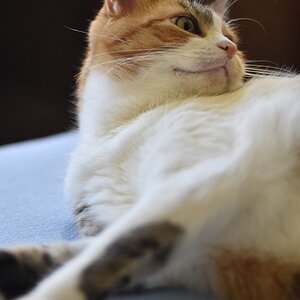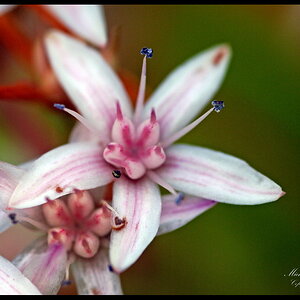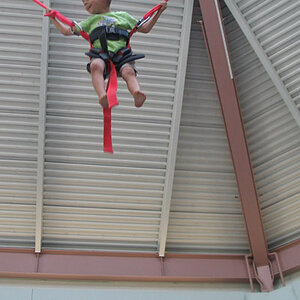bla
TPF Noob!
- Joined
- Aug 10, 2005
- Messages
- 282
- Reaction score
- 0
- Location
- Montreal, eh?
- Can others edit my Photos
- Photos OK to edit
Hey everyone,
I've recently become interested in macro photography, though I still love the nature and street photography I have been enthralled with until now. I bought a Nikon dSLR about a year ago. I have the kit zoom lens that came with it, but it's a bit slow at f3.5 to f5.6. So with the summer under way and a little more time on my hands, I've been browsing for a new lens.
I realize that a good lens investment is rather costly. But being a student and having acquired said camera not too long ago, I am restrained to a tight budget. And though I would love to buy both a true 1:1 macro lens and a fast wide angle lens, I just don't have finances for it.
So I've taken a look at some of my choices on B&H Photo Video. If anyone could take a look and give me some suggestions, or just general advice about lens choice, I'd greatly appreciate it.
Sigma wide angle macro (but only 1:2.9) lens
http://www.bhphotovideo.com/c/product/217762-USA/Sigma_440306_W_A_28mm_f_1_8_EX.html
Sigma 50mm (75mm digital) macro lens
http://www.bhphotovideo.com/c/product/341927-USA/Sigma_346306_50mm_f_2_8_EX_DG.html
Nikon 50mm f1.8 (cheap!!! )
)
http://www.bhphotovideo.com/c/product/247091-USA/Nikon_2137_Normal_AF_Nikkor_50mm.html
PS. I like portraits as well, hence the Nikon 50mm? Good choice? Help?
I've recently become interested in macro photography, though I still love the nature and street photography I have been enthralled with until now. I bought a Nikon dSLR about a year ago. I have the kit zoom lens that came with it, but it's a bit slow at f3.5 to f5.6. So with the summer under way and a little more time on my hands, I've been browsing for a new lens.
I realize that a good lens investment is rather costly. But being a student and having acquired said camera not too long ago, I am restrained to a tight budget. And though I would love to buy both a true 1:1 macro lens and a fast wide angle lens, I just don't have finances for it.
So I've taken a look at some of my choices on B&H Photo Video. If anyone could take a look and give me some suggestions, or just general advice about lens choice, I'd greatly appreciate it.
Sigma wide angle macro (but only 1:2.9) lens
http://www.bhphotovideo.com/c/product/217762-USA/Sigma_440306_W_A_28mm_f_1_8_EX.html
Sigma 50mm (75mm digital) macro lens
http://www.bhphotovideo.com/c/product/341927-USA/Sigma_346306_50mm_f_2_8_EX_DG.html
Nikon 50mm f1.8 (cheap!!!
http://www.bhphotovideo.com/c/product/247091-USA/Nikon_2137_Normal_AF_Nikkor_50mm.html
PS. I like portraits as well, hence the Nikon 50mm? Good choice? Help?


![[No title]](/data/xfmg/thumbnail/30/30996-79ed44b1137a7c3ab5b0a1146b111238.jpg?1619734559)
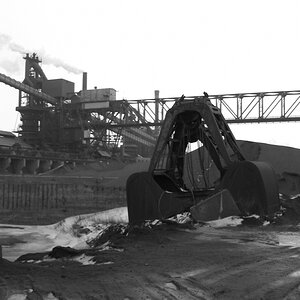
![[No title]](/data/xfmg/thumbnail/31/31017-dec7e898bd21f99b70534f8d06a4154c.jpg?1619734571)
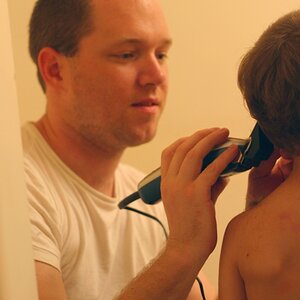
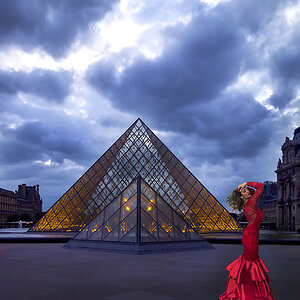


![[No title]](/data/xfmg/thumbnail/31/31018-a537939c7ad9fc1126461101c651a8a0.jpg?1619734572)
![[No title]](/data/xfmg/thumbnail/31/31016-072880d9bc086c9fe71b9b1ae48603d4.jpg?1619734571)
